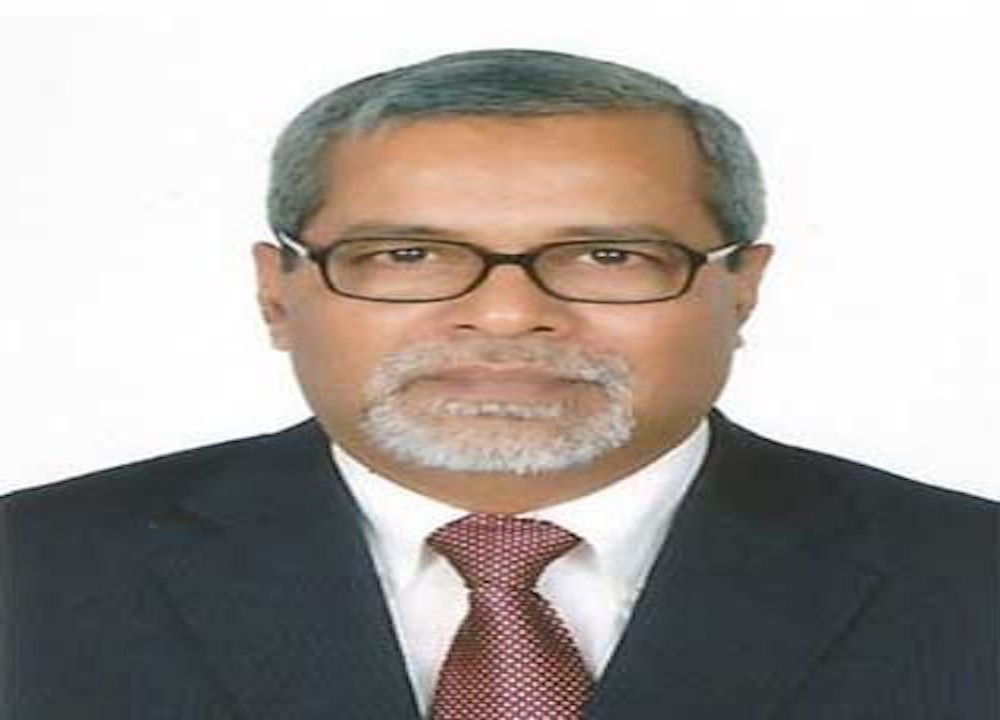Election commotion
The failure to address corruption allegations undermines the Bangladesh Election Commission’s credibility — and the president’s.

Often no response is the best response, or so we are told. But sometimes inaction itself fuels the flames. This is what Bangladesh’s president, Abdul Hamid, is likely to have just discovered. Last month when Hamid was presented with a document listing allegations of corruption against the country’s election commission and a letter imploring him to investigate, he perhaps hoped the more muted his reaction, the quicker the story would die. After all, on countless other occasions this tactic has seemed to work. A stream of corruption charges have been levied against the government and officials appointed by it, many without creating any fanfare whatsoever.
But Hamid calculated wrong. It may be the fact that the letter was signed by 42 eminent citizens, some of whom are internationally renowned, who cut across political divides and walks of life, from photographer and activist Shahidul Alam to former caretaker government advisor Hafizuddin Khan. It may also be because the election commission is absolutely central to Bangladeshi democracy or that the allegations are well evidenced and cross-referenced with numerous media reports and investigations. Regardless of the reason — and it probably involves all of these — silence has not killed the story.
Instead, the documents submitted to the president continue to cause a commotion. “We were unprepared for such a huge response from civil society and the media,” says supreme court lawyer Shahdeen Malik, who was responsible for submitting the letter of the 42 to the president’s office. “Suddenly everybody started supporting us, including nearly all the political parties, except Awami League. Even some Islamic parties have taken up the cause.”
The allegations at the centre of the storm, if true, are damning. Split into two parts, the first is about corruption, says Iftekharuzzaman, one of the signatories and the executive director of Transparency International Bangladesh (TIB). As is quite a common practice, the officials made a bogus training programme budget and “misappropriated funds through this”, he says, explaining one of the instances of alleged financial misconduct listed. Altogether, according to Iftekharuzzaman, the election commissioners and officials allegedly paid themselves around a total of Tk 1.52 crore ($180,000) under the pretext of being “special speakers”. The recruitment process proved to be far more lucrative, however, according to the head of TIB. Through this, again the commissioners and officials are alleged to have fraudulently acquired around Tk 4.25 crore (half a million dollars), he says.
The second part of the allegations details the election commission’s failure to discharge free and fair elections — its core responsibility. It lists several municipal elections, which were blighted by irregularities under the election commission’s watch. Excluding Dhaka North and South and Gazipur where there were serious irregularities, the rigging in the municipal elections was generally subtle and controlled, according to Iftekharuzzaman. In the later national election of December 2018, however, there were “gross irregularities of many different types”. Polling stations were captured, many people were not allowed to enter to cast their vote and there was little to no attempt to ensure the safety of opposition candidates and their workers. The stuffing of ballot boxes the night before the national election was also “massive’, he adds, exclaiming, “it was unthinkable!”. Even the ruling party candidates, observes the TIB executive director, were “shocked” that this happened. All of this, he underscores, was within the jurisdiction of the election commission, which during election periods holds the reins of government.
“It is unprecedented”, says Badiul Alam Majumdar, founder-secretary of Citizens for Good Governance (known as Shujan), who spearheaded the efforts of the 42 citizens. In the past, including under the tenure of the Bangladeshi National Party (BNP), “there have been allegations of the election commission not taking action against rigging and showing partiality”, he explains. “But this is the first time there is such widespread corruption involving a huge sum of money”.
The president’s dismissal of the allegations and failure to act, therefore, has been disappointing, says Malik. He points out that only the supreme judicial council is entitled to investigate the election Commission, and only the president can form the council. The onus, therefore, rests singularly on President Hamid.
Though disappointed, the supreme court lawyer is not surprised. If an investigation into this matter proved the allegations to be true, “it would undermine the moral legitimacy of the government”, he says. “Legally”, however, Malik adds emphatically, it would not undermine the government’s legitimacy. The election result, “cannot be challenged”.
Mahfuz Anam, the editor and publisher of The Daily Star, underscored this point in a recent opinion piece entitled: “Ignoring allegations is not the answer, investigating them is”. “The argument that any discrediting of the EC will delegitimise the elections that were held under it is a laboured one, and should not cloud the government’s thinking”, writes Anam.
Dismissing the request for an investigation out right, in a press briefing on December 24th, Chief Election Commissioner KM Nurul Huda denied the allegations, saying that had ulterior motives.
It seems not all government institutions agree, though. The Office of the Controller and Auditor General (CAG) has investigated the dealings of the election commission and reported a series of anomalies, it was revealed on January 3rd. The CAG’s findings, evidenced by a paper trail, match those of the 42. They show that government allowances were given against training and speaker positions, which were not approved by the finance ministry.
Rather than abating, pressure on the president is mounting — and not only from the press and civil society. “The least we are hoping for”, says Mailk, is that it will lead to “a better election commission” next time round. “Then we have a better chance of a fair election.”●
Susannah Savage is a journalist covering Bangladesh — she writes for The Economist, The Telegraph, the Financial Times and other publications.